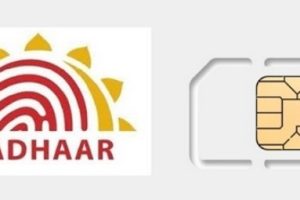“Where should I invest?” This is a question many of our readers write to us about. This comes as no surprise what with the many investment products available.
Many just leave their money idling in their savings bank account, earning as little as 2.5-3% interest rate. There are other investment options that can offer better returns.
Here is a look at seven investment options you can consider parking your money to get better returns than savings account interest rates of the big private and PSU banks.
Bank fixed deposits (FD)
A bank fixed deposit (FD) comes with assured return and safety. It is safe before FDs are covered under the Deposit Insurance and Credit Guarantee Corporation (DICGC) rules. Deposits with all banks are covered under DICGC insurance cover of Rs 5 lakh; earlier many cooperative banks were not included in this coverage. However, in 2020 the government introduced an amendment in the Banking Regulation Act where RBI was given complete regulatory control over cooperative banks and all banks were put under deposit insurance coverage.
With regards to investing in FDs, as per your need, you can opt for monthly, quarterly, half-yearly, yearly, or cumulative interest options. The interest rate earned is added to one’s income and taxed as per one’s income slab. Senior citizens are typically offered higher interest rates.
At present, FD rates are at a high. Over the past two years many banks have hiked their interest rates. Some small finance banks are offering interest rates as high as 9.5%, while big private and PSU banks are offering rates a little over 8%.
Sweep-in fixed deposit
“When you apply for the sweep-in facility, the bank breaks up units of the specified FD in units of Rs 1. In doing this, it makes sure funds are available in your sweep-in Savings or Current Accounts, whichever is linked. With this, cheques or any other debit transaction from your account is not hindered due to a lack of sufficient funds in your Savings/Current Account. The facility is only available for resident Indians, HUFs, and private and public firms,” stated the HDFC Bank website.
Post office schemes
The post office offers various types of deposit schemes for those looking to invest. These instruments are also known as small savings schemes. Some of these schemes such as NSC, SCSS, PPF etc. also offer tax-saving benefits under section 80C of the Income-tax Act, 1961. Interest rates on small savings schemes are reviewed and fixed every quarter by the government. Even though banks have started increasing FD interest rates, many small savings schemes are still earning higher interest rates.
Debt mutual fund schemes
Debt mutual funds are those that do not invest in equities rather it puts the investor’s money primarily into fixed-interest generating securities like corporate bonds, government securities, treasury bills, commercial paper, and other money market instruments. As per the Sebi categorisation rules, there are 16 categories of debt MF schemes. Depending on the duration of the underlying securities, the investor should choose the specific category of schemes. Starting from April 1, capital gains made on debt mutual funds, exchange-traded funds (ETFs), international funds, gold funds, and certain categories of hybrid funds – schemes that invest less than 35 per cent in Indian equities – will be added to your income and taxed at the slab rate applicable to you. You will no longer enjoy the long-term capital gains (LTCG) tax benefits and indexation benefits on debt mutual funds…Read More
Source By: economictimes










